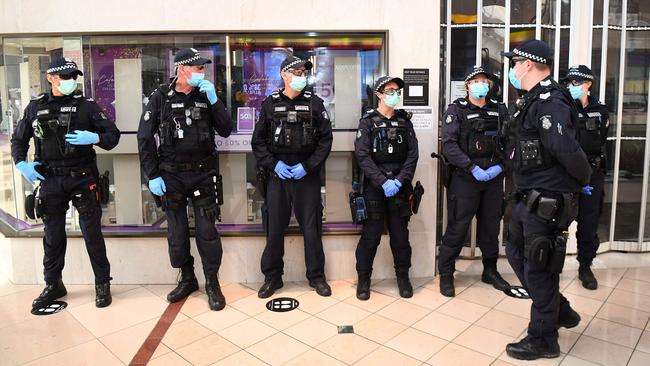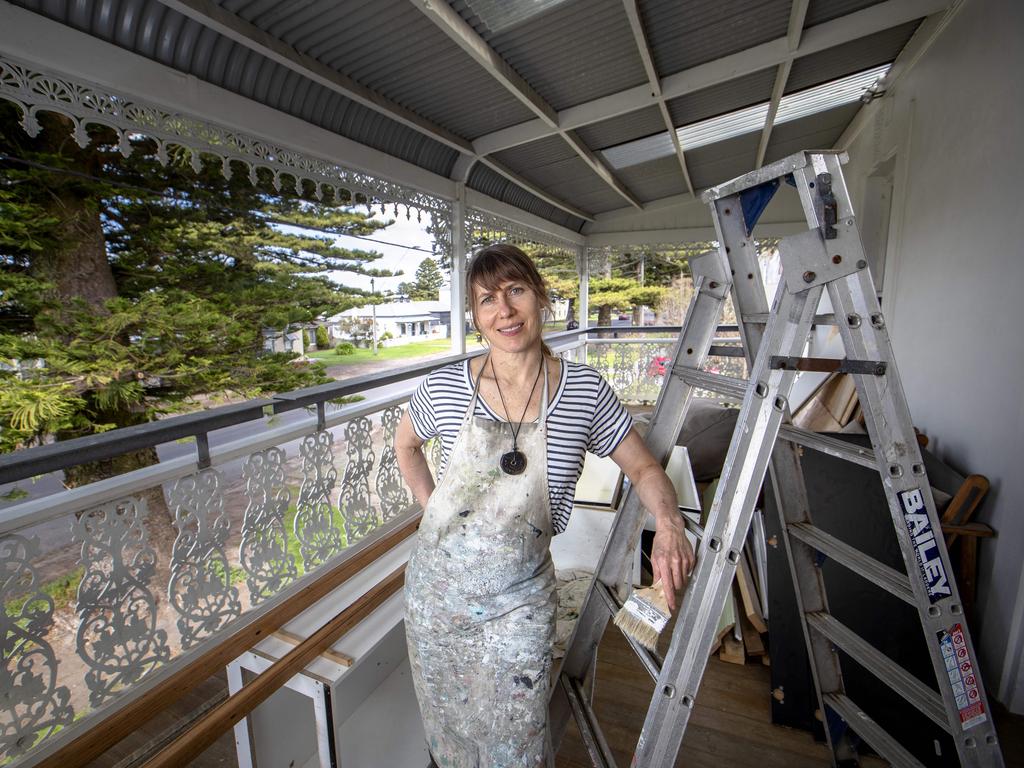Power-hungry Premier Andrews must consider partyroom views on coronavirus

Eradication was not on the agenda; we understood that would require curbing civil liberties. There was a strong view around the cabinet table that, unlike citizens of totalitarian regimes such as China, Victorians would not accept it, that we would not be granted social licence to impose draconian measures unless the pandemic risked our capacity to cope.
Fast-forward to last week where after months of incrementally stripping Victorians of their basic freedoms, I was incredulous to hear Daniel Andrews casually admit the curfew was not based on expert advice or empirical evidence, it was about “operationalising” the Chief Health Officer’s directions. Removing freedom of movement cannot be dismissed simply as “operationalising” a CHO directive – it is a major public policy decision in its own right and must be supported by expert advice and that advice must be based on robust evidence. It must also be a proportionate response to the problem.
But to Andrews the curfew was a trifling thing: “Why would anyone want to go out after 8pm – you can’t go to Coles or a jog so what is the problem?” He could not understand the fuss. In Andrews’s world of middle-class suburban domestic bliss by 8pm everyone should be tucked up in bed.
The real world is more complex. Expert advice and empirical evidence would have taken account of numerous other factors such as the curfew’s effectiveness, and balanced that against its effect on shiftworkers, households that may require a member of the household leave the house in order to de-escalate a burgeoning conflict, people with mental health issues understanding they need to get out because they feel like the walls are crushing in on them. In other words, a scientific approach would have revealed if the curfew was proportionate given all the other restrictions. That Andrews was surprised by the public backlash is hard to understand. Weeks earlier he had similarly been surprised by the public backlash to the plan to increase the State of Emergency legislation for a year. How did we get from protecting civil liberties to a point of imposing some of the toughest lockdown restrictions (with some of the world’s lowest infection rates) and curfews (a favourite of tinpot dictators) without expert advice or evidence?
Simple. The hotel quarantine and contact tracing fiasco combined with failing to act in a timely manner to control caseloads. Andrews knows he will be held personally culpable for these failures and so is willing to adopt a take-no-prisoners approach to get infection rates under control to the point of eradication. The loss of civil rights and economic damage are just collateral damage.
Now’s the time to have cabinet, the partyroom and parliament fully functioning for collective decision-making, scrutiny and accountability.
Andrews has gone the other way, extending the crisis cabinet, which was reconfigured overnight in the middle of a pandemic. Decision-making was centralised around the Premier, his private office and his department; department secretaries began reporting directly to the Premier as ministers were sidelined and the government began to operate in silos. The accountability of ministers and bureaucrats was thrown out the window (that no one knows who was responsible for tasking vital quarantine security guards speaks volumes). Ministers with intimate knowledge of their portfolios were sidelined while those not familiar with those detailed areas were given responsibility for important reforms.
A previously well-functioning cabinet government was thrown into chaos. Most were in no doubt it was less about the virus than Andrews centralising power in his hands while never wasting a crisis.
So Victoria is the only state with a crisis cabinet and the only state with a crisis. Andrews has a cabinet and caucus that bat deep and needs to return to full cabinet so vigorous scrutiny can be applied in challenging times.
I was a member of both the Steve Bracks and John Brumby partyrooms. The Bracks/Brumby partyrooms had robust input into decision-making – the Andrews government caucus, this parliamentary term, is often bypassed. Andrews’s priority is to win the support of the upper house crossbench and bypass his partyroom. But caucus members are at the coalface daily and are best placed to provide feedback directly from their communities.
The government, to all intents and purposes, has the numbers in the upper house so the partyroom has an important duty to scrutinise the executive (crisis cabinet) and speak up when it overreaches.
The government has encroached on our lives in ways unimaginable only a few months ago. With our civil liberties being stripped away, we must make sure our institutions are functioning properly with appropriate checks and balances. Governments must keep their citizens safe from threat, and this can require coercive force and curtailed civil liberties but, whether it be from the threat of terrorism or pandemic, measures must be proportional.
If Andrews removes his rose-coloured glasses to look at China, he will see what contempt for civil liberties looks like. The Chinese Communist Party has detained more than a million Muslim Uighurs because some may have committed acts of terror – this is hardly a proportionate response.
Does Andrews believe Victoria should go down the path of the CCP in defeating COVID-19? That would be a Pyrrhic victory.
Adem Somyurek, a former Labor minister for small business and local government, now sits on the crossbenches in the Victorian Legislative Council.




Just as COVID-19 was beginning to arrive in Australia, cabinet discussed the capacity of our hospital system: how many ICU beds, ventilators and PPEs we had and how to keep virus numbers below our capacity to treat patients. Fresh from the experience of Wuhan and Milan, where we saw nightly reports of Italian hospitals bursting at the seams and doctors having to decide who was to live or die, our objective was to keep the curve below the capacity line so our doctors did not face similarly unpalatable choices.